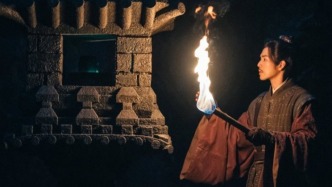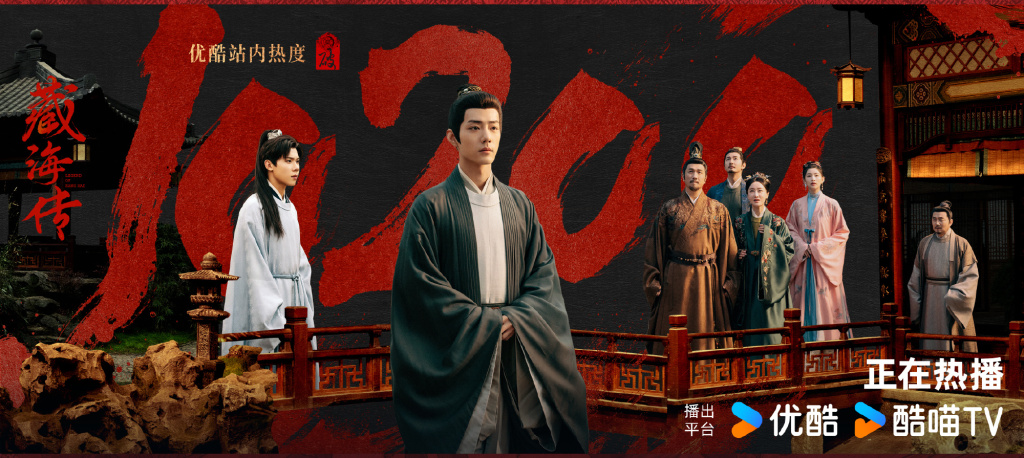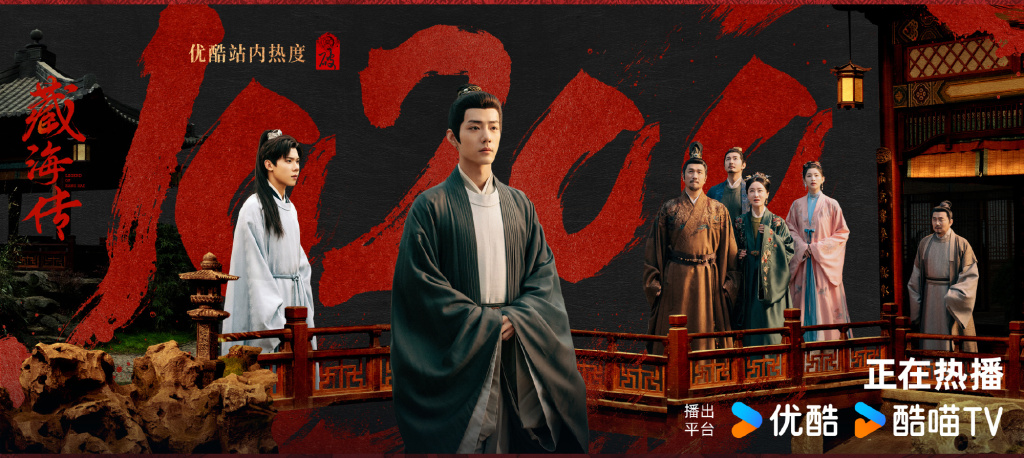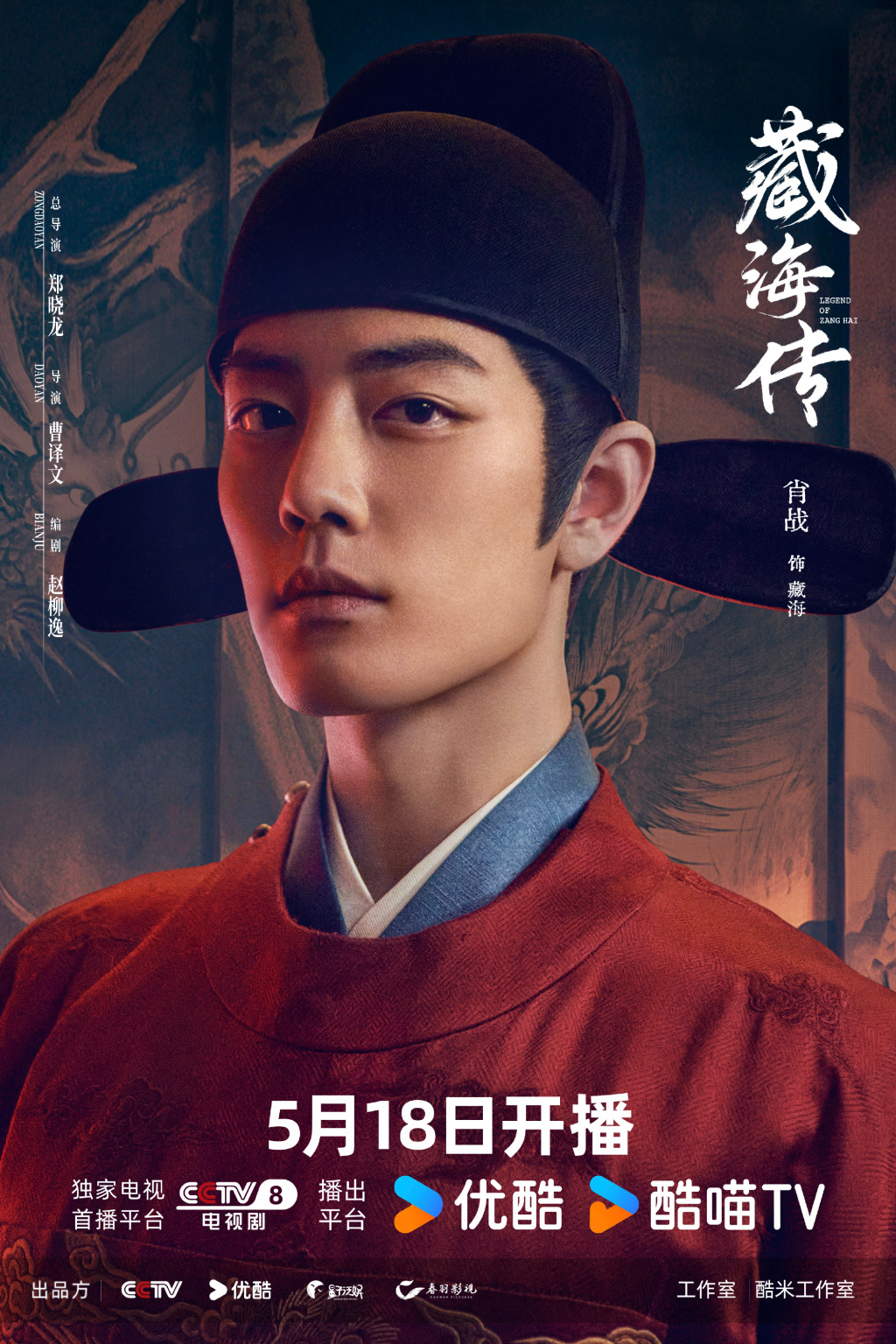
The ancient legendary drama "The Legend of Cang Hai", directed by Zheng Xiaolong and Cao Yiwen, is currently on air. The drama tells the story of Cang Hai, whose original name was Zhinu, who endured for ten years because his family was exterminated. After returning to the capital, he relied on his construction skills and the art of diplomacy to maneuver in the court, outsmart the treacherous, and step by step uncover the truth about the tragic death of his parents and safeguard the righteousness of his family and country.
The protagonist Zang Hai's growth from the initial "forbearance of revenge" to the final "caring for the world" demonstrates the superficial tension of "revenge" in traditional narratives, and delves deeply into the gradual process of how hatred reshapes personality and how it is eliminated by higher values, ultimately completing the individual's transformation and sublimation from "avenger" to "guardian".
"Legend of the Hidden Sea" breaks through the creative spectrum of domestic costume dramas that simplifies revenge narratives into "blood for blood" to release the refreshing feeling of catharsis. It seeks innovation in the existing creative system, interweaving the two major themes of "revenge" and "growth" into twin narratives about the transformation of human nature and self-salvation, injecting more oriental aesthetics and philosophical thinking into the extreme conflicts.
The revenge narrative of "The Legend of Cang Hai" begins with a family massacre: Kuai Duo, the director of the Imperial Observatory of the Great Yong State, was killed by the powerful official Pingjin Hou because he discovered the "Snake Eyebrow Bronze Fish" and "Gui Seal" that symbolize power. The young son Zhinu witnessed the tragic death of his relatives and was rescued by a mysterious masked man. "Revenge" requires not only strength, but also "belief". In the ten years after being rescued, Zhinu, who has changed his name to "Cang Hai", learned knowledge and accumulated skills under the guidance of the three masters, Xingdou Master, Gao Ming and Liuchu. As the plot develops, Cang Hai designs to let the emperor see through Pingjin Hou's ambition to usurp power, and unites with his close friends to resolve the war crisis. It should be said that all of this is a rewriting of the classic theme of "revenge". In comparison, the key elements of the "growth" theme as a biographical narrative type are presented in "The Legend of Cang Hai" not only in the name of the play, but more importantly in the display of the plot in the play. In the play, although Cang Hai aims for revenge, he has not become a cold-blooded revenge machine. Faced with the innocence of his enemy, Zhuang Zhixing, the son of Pingjin Marquis, he once felt guilty for taking advantage of innocent people; his emotional entanglement with the winter and summer princess Xiang Antu made him realize the warmth of human nature beyond hatred. This concrete "growing pains" transcends the one-dimensional image of the traditional avenger, showing the alienation and redemption of hatred on human nature, and also highlights the protagonist's growth in revenge, revenge in growth, and ultimately transformation into an ideal personality construction that takes responsibility for the fate of his country. The reason is that Zang Hai's growth is not only the improvement of skills, but also the dual transformation of identity and cognition.
It is worth mentioning that the twin narratives of revenge and growth in "Legend of the Hidden Sea" are also quite immersive and philosophical, but its controversy cannot be ignored. However, these controversies just prove the market's desire for high-quality genre dramas - the audience not only wants to see the pleasure of revenge, but also expects deeper exploration of human nature and cultural expression.
"The Legend of Canghai" proves that revenge narratives can go beyond the framework of cool dramas and become a vehicle for exploring individual growth and cultural identity. When Canghai finally lets go of his hatred and chooses to protect his country, the series completes a creative transformation of the traditional theme: revenge is not the end, but the starting point for understanding the complexity of human nature and the continuity of history. This creative idea has brought some new inspiration to the genre innovation of domestic dramas - embedding individual destiny into a broader cultural context can give traditional themes new vitality.


